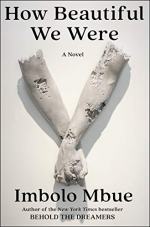|
This section contains 1,691 words (approx. 5 pages at 400 words per page) |

|
We should have known the end was near. How could we not have known?
-- The Children
(chapter 1)
Importance: These two sentences, the opening lines of the novel, perform four functions: they introduce the reader to the collective voice of the narrator; they foreshadow the tragic end that the village of Kosawa will come to; they introduce the theme of lost innocence; and they demonstrate the rhetorical strategy of asking unanswerable questions, which will be used throughout the novel. The collective narrator, written in first-person plural, will often have occasion to ask rhetorical questions, as a way of building the readers’ sympathy. A cynical person might not have to ask such questions, but the children of the village, who narrate much of the novel, are anything but cynical: instead, they have had their natural childhood innocence robbed from them by the deaths caused by the ecological destruction of their village.
I hate this world, but...
-- Thula
(chapter 2)
|
This section contains 1,691 words (approx. 5 pages at 400 words per page) |

|



